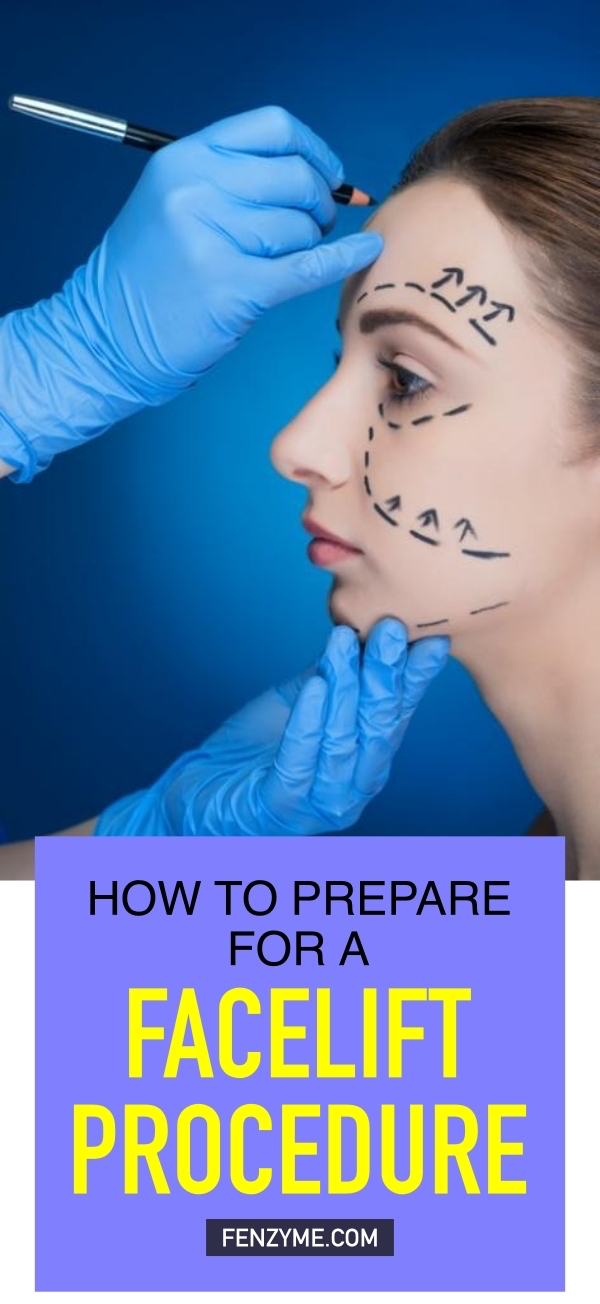If you’ve recently booked a procedure with the top New York surgical facelift expert, you’re probably wondering what you need to do to prepare for your upcoming surgery. Having any form of surgery is a big deal and it’s important to know the necessary preparatory steps that you need to take. Properly preparing physically and mentally for your surgery will make things much easier for you and the surgeon.

In this article, we’ve listed some important things that you need to do before a facelift so that the procedure goes as smoothly as possible. Here are a few things you should do to prepare for your facelift surgery:
Organize Your Funding
While facelifts aren’t the most expensive form of surgery out there, they aren’t cheap. Facelifts are not usually covered by health insurance plans either, so you’ll need to pay for the surgery out of your own pocket. If you don’t have the required amount of money saved up, start looking into alternative funding options such as medical loans.

Make sure to speak with your surgeon about the costs of the facelift and any administration fees. They will advise you on the available payment options so you can decide which is best for you.
Manage Chronic Health Conditions
You’ll want to be in the best shape possible for your surgery and this means you need to manage any chronic health conditions. If you have diabetes, high blood pressure, or heart problems, it’s important to get these conditions under control before surgery. Your surgeon will need to know about any chronic health conditions that you have as they may affect the anesthesia and how your body heals after surgery. Make sure to let your surgeon know about any medications that you’re taking as well.

If you have any chronic health conditions, make sure to follow your doctor’s orders on how to manage them before and after surgery. This will help reduce the risk of complications during and after your facelift. For example, if you’ve got type 1 or type 2 diabetes, make sure to monitor your blood glucose levels closely in the days leading up to your facelift. If you have respiratory health problems, make sure you have everything that you need to prevent the condition from getting worse prior to your surgery.
If you’re not sure how to effectively manage your chronic health conditions in preparation for your procedure, speak to your surgeon and get their expert advice.
Adjust Your Medications Accordingly
Your surgeon will ask you to list the regular medications that you take so that they can rule out the risk of contraindications. They may advise you to adjust your medications in the days leading up to the procedure, depending on which ones you’re currently taking. For example, if you take blood thinners, your surgeon may advise you to stop taking them a few days before surgery as they can increase the risk of bleeding during and after surgery.

If you’re unsure about which medications you should take or avoid before surgery, always ask your surgeon for their professional opinion. Make sure to take their advice on board to avoid any delays or complications. Generally, it’s recommended that you stop taking non-steroidal anti-inflammatory drugs (NSAIDs) or herbal supplements prior to a facelift.
Quit Smoking
Smoking can cause a number of problems during and after surgery. It can delay healing, increase the risk of infection, and lead to complications such as pneumonia. For these reasons, it’s important that you quit smoking at least six weeks before your facelift surgery. If you can’t quit completely, you should at least try to cut down as much as possible.

If you need help quitting smoking, speak to your doctor about the available options. There are a number of effective treatments that can help you kick the habit for good.
Get Plenty of Rest

It’s important that you get plenty of rest in the weeks leading up to your facelift. This will help you recover quickly and effectively after surgery. Try to get at least eight hours of sleep every night and avoid working late nights or early mornings. If you have trouble sleeping, speak to your doctor about the available options. They may be able to prescribe medication to help you get a good night’s sleep.
Prepare for Recovery
Recovery from a facelift can take several weeks. During this time, you’ll need to take it easy and avoid strenuous activity. You may also need to take some time off work to recover properly. It’s important to have someone available to help you out at home in the first few days after surgery. They can help with things like cooking and cleaning while you recover.

In the weeks following your facelift, you should avoid exposure to sunlight or UV rays. This can cause the skin to heal slower and may increase the risk of complications. Make sure to wear sunscreen with an SPF of 30 or higher when you go outside.
If you have any questions or concerns about your recovery, speak to your surgeon. They will be able to give you specific instructions on what you should and shouldn’t do during your recovery period.
Plan Your Meals for the Post-Surgery Period

Meal prep can be a lifesaver after surgery. It’s likely that you’ll feel groggy and tired in the days following your facelift. You may not feel like cooking, but it’s important to make sure you eat healthy meals. Planning and preparing your meals in advance can help you stay on track with your diet. Having meals prepared and ready to eat will make your recovery period easier and more enjoyable. It will also reduce your temptation to order takeaways for every meal!
Pack Comfortable Clothes

After you’ve had surgery, you may take several days to start feeling like yourself again. You’ll be bruised, swollen, and tired, so adequate rest is important to help your body heal.
You may be asked to stay in the hospital or private practice for a few days after your surgery so that the doctors can monitor your recovery progress. Pack plenty of relaxed, baggy clothes in your hospital bag so you can rest in comfort.
Final Thoughts
Facelift surgery is a big decision. It’s important that you do your research and consult with a board-certified plastic surgeon to ensure you are making the best decision for your needs.
During your initial consultation, your surgeon will assess your individual needs and develop a treatment plan that’s right for you. He will also answer any questions you have about the facelift surgery process. The preparation of surgery is an important piece of the puzzle that will prepare you for a smooth recovery so don’t skip this important step.
